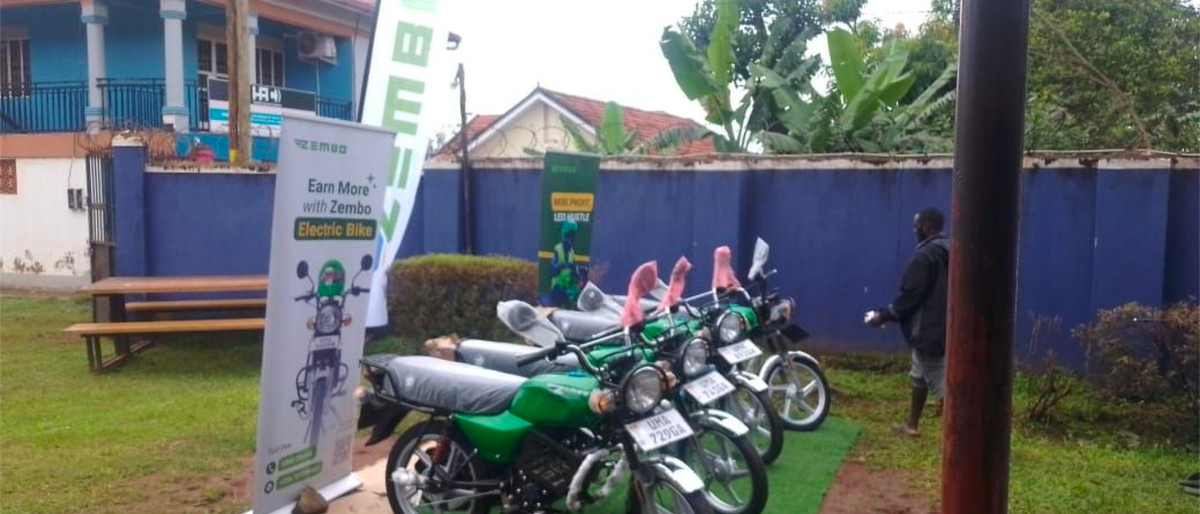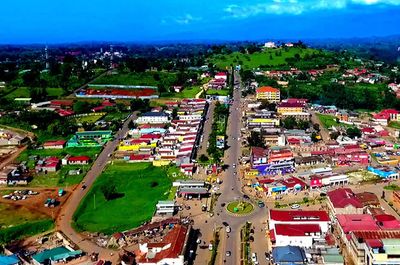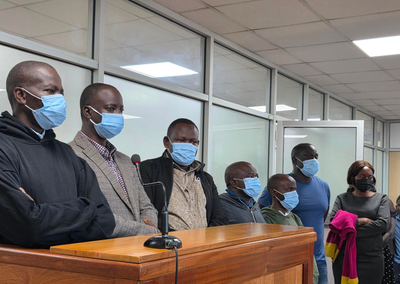
Uganda’s electric motorcycle market is entering a new phase of accelerated growth as asset financing companies step in to address the cost and financing barriers that have long held the sector back.
The country’s e-mobility journey began slowly. By 2018, when Zembo first started production, fewer than ten electric motorcycles were operating in Uganda. This number rose to 750 units by the end of 2022 and further surged to approximately 4,200 by the close of 2024.
At the outset, public skepticism posed a major challenge. Many Ugandans questioned whether electric motorcycles could withstand the country’s rugged terrain, match the performance of fuel-powered bikes, or offer real durability. However, those doubts have since faded.
According to Zembo Chief Executive Officer James Obarowski, demand for electric motorcycles now exceeds supply. “We currently have a production backlog due to high demand,” he said during the launch of a new partnership between Zembo and Tugende, an asset financing company. The collaboration will allow riders to purchase electric motorcycles on credit, easing one of the biggest barriers to adoption.
Obarowski noted that the cost of an average electric bike has dropped from about UGX 7 million to UGX 5 million, a change he attributed to increased local experience, research, and technological advancement. He added that the partnership with Tugende will make access to electric motorcycles even more affordable.
To demonstrate durability, Obarowski highlighted that “some customers who bought Zembo cycles in 2018 are still using them” because of low maintenance needs, easy access to spare parts, and performance comparable to that of fuel-powered motorcycles.
On infrastructure, he said Zembo is expanding its battery swap and charging network by about ten new stations every month, with 50 already operational across Kampala and its outskirts.
Meanwhile, the success of Zembo and similar initiatives has spurred other players to enter Uganda’s e-mobility space. Companies such as Spiro, GOGO, and the University of East Africa have joined the market. Industry projections estimate that by the end of 2025, Uganda will host at least 50,000 electric motorcycles, a figure expected to rise to 140,000 by 2028.
Financing Partnership to Boost Access
Tugende Limited, a profit-driven social enterprise, uses asset finance, technology, and a customer-focused model to support informal sector entrepreneurs (MSMEs) in achieving economic stability and growth. Through its new partnership with Zembo, Tugende becomes the company’s official electric motorcycle financing partner. The collaboration seeks to “dramatically” expand access to affordable, zero-emission transport for boda boda riders in Uganda’s urban and peri-urban centers.
“This collaboration moves beyond simply swapping fuel for batteries. It represents a coordinated effort to address high operating costs and environmental impact, directly empowering riders essential to the economy so they can earn and keep more money for their families and futures,” said Patrick Asiimwe, Tugende’s Country Manager for Uganda.
He added that Zembo was chosen for its “proven reliability under Ugandan conditions,” aligning with Tugende’s commitment to environmental protection and energy transition.
Under the arrangement, the two firms will finance and deploy large numbers of Zembo electric motorcycles over the coming months. Tugende will offer flexible financing and value-added services, while Zembo will provide access to its expanding network of battery swap stations helping riders stay on the road longer while cutting operating expenses.
Asiimwe also pointed out that Tugende’s entry into e-mobility will enhance the reliability of hire-purchase options, as “some riders currently acquire motorcycles on credit under uncertain or exploitative conditions.”
Riders’ Experience and Future Outlook
Early adopters, such as Elly, who bought his Zembo bike in 2018, speak highly of their experience. He described the motorcycle as easy to maintain, with no engine servicing required and significantly lower running costs compared to fuel-powered alternatives. He added that charging and spare parts issues have largely been resolved and noted that electric motorcycles are “safer to operate even at night since they are less attractive to thieves.”
Michael Wilkerson, Tugende’s Chief Executive Officer, expressed optimism about the growth potential of the partnership. He said they expect a rapid surge in adoption thanks to flexible financing options, low upfront costs, quick approvals, and reliable bikes. “This is a clear win for the riders’ finances, the air quality, and the communities we serve,” Wilkerson said.
The rollout will begin immediately in major economic centers starting with Kampala before expanding to Masaka, Jinja, and Entebbe, with the goal of achieving nationwide coverage by mid-2026.
With Uganda’s boda boda fleet currently estimated at around 400,000 motorcycles, the Ministry of Science, Technology and Innovation notes that a substantial gap remains to be bridged if the nation’s goal of 100% motorcycle electrification by 2030 is to be met.













Chrispus Mutaahi
Leave a Comment
Your email address will not be published.